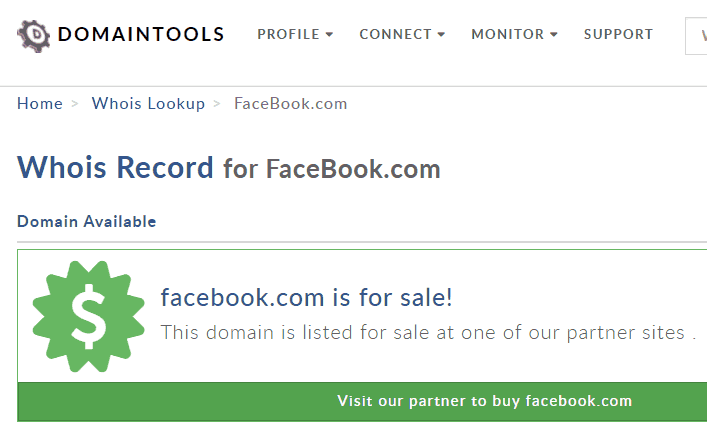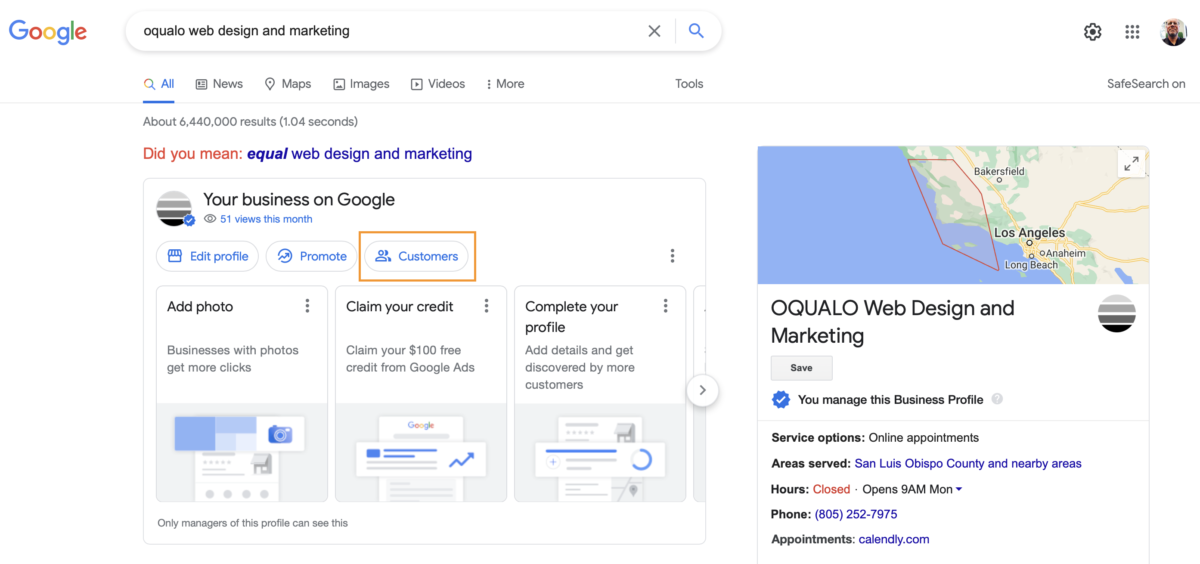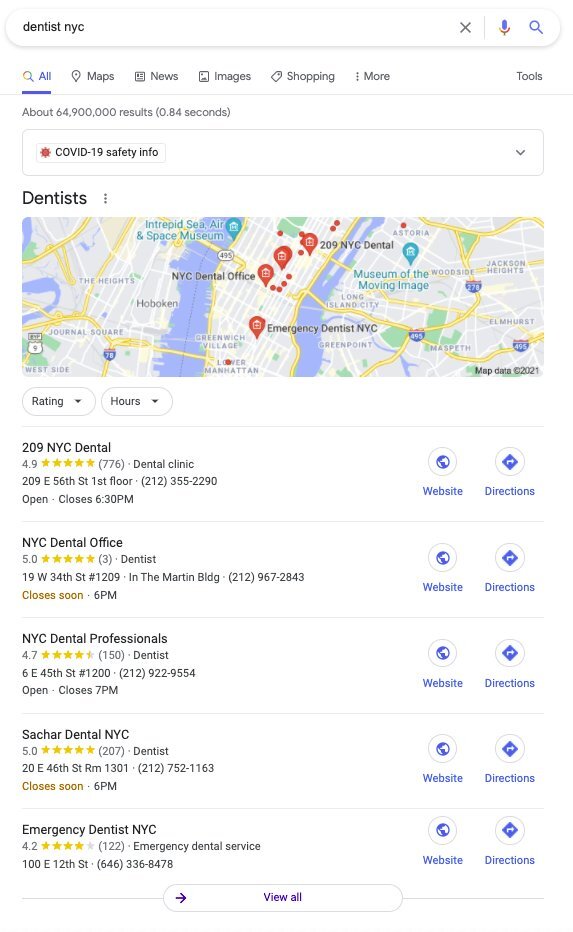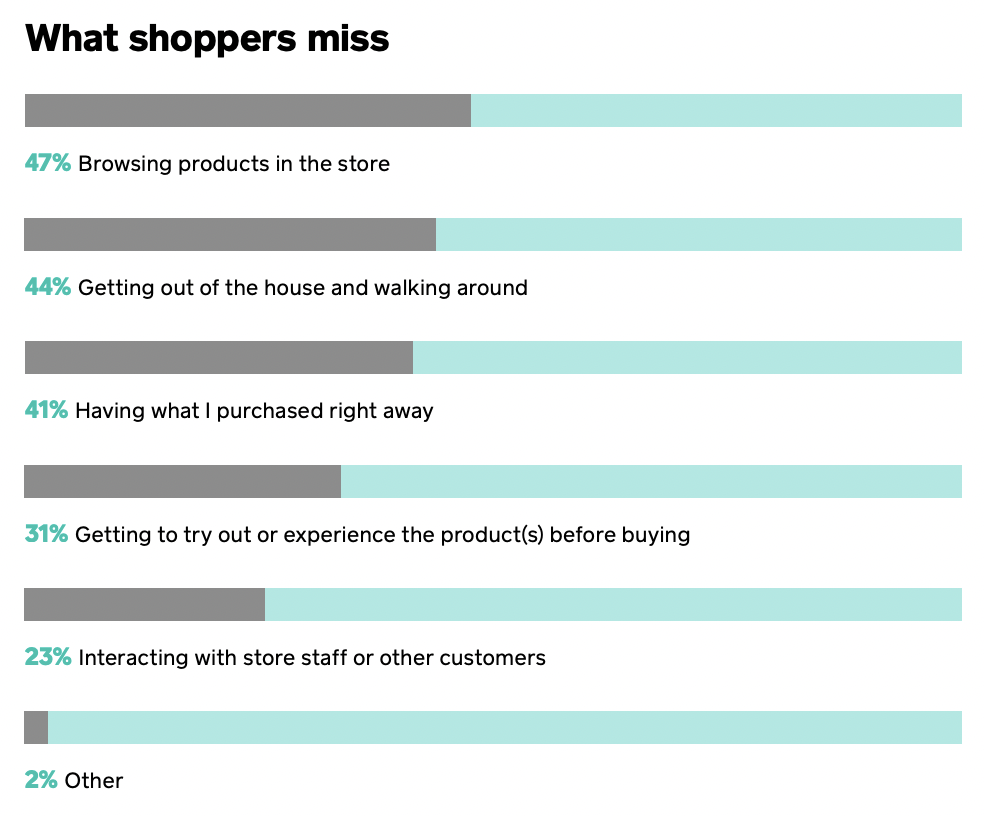The Local Memo: The Causes and Impacts of the Facebook Outage
In this week’s update, learn about the causes and impacts of the Facebook outage; quotes via email with GMB; a 5-pack experiment from Google; Google’s new eco-friendly features; Facebook’s report on diversity in advertising; and consumer preferences for digitized local shopping.
The Causes and Impacts of the Facebook Outage
As most of the world is certainly aware, the Facebook family of social and gaming platforms, including Facebook itself, Instagram, WhatsApp, and Oculus VR, suffered a massive global outage lasting six hours on Monday, October 4th. It was one of the worst outages in the company’s history, so severe that Facebook essentially disappeared from the internet and was briefly listed as an available domain on several registrar sites. Facebook’s internal tools and communication systems also ceased working during the outage, making resolution especially difficult.
Despite rumors to the contrary, Facebook claims it was not hacked, but rather went offline due to a “faulty configuration change” that caused its data centers to lose connectivity with each other. Advertisers were not charged for ads that failed to run during the outage. News stories reported that business owners depending on Facebook for sales lost revenue while the platform was offline, with one retailer reporting that sales for Monday were down 75%.
Image courtesy Search Engine Journal
GMB Request a Quote Button now Works with Email
Ben Fisher has shared on Twitter a new Google help page that indicates select businesses will soon be able to configure a “Request a quote” button in their business profiles that initiates an email exchange between the business and the customer. According to the help page, the button will launch “a form that has been tailored to your business category” that walks the customer through the process of requesting a quote via email. When any owner or manager of a business profile responds to a quote request, all other owners and managers are notified via email. Google suggests that emailed quote requests should be responded to within 24 hours, and says it may disable the functionality for businesses that habitually respond more slowly. GMB Insights will report on response times so that businesses can more easily keep track.
To enable quotes via email, qualifying businesses need to bring up the Knowledge Panel for the relevant location in Search while logged in with the account that owns or manages the business location. (The easiest way to do this is to click “See your profile” or “View on Search” from the GMB dashboard.) Click the “Customers” button in the box at the top of the page with the heading “Your business on Google” and select “Quote requests.”
I’ve yet to see this in the wild, but if it rolls out more broadly, this change will be welcome for service-based businesses. Previously, the only way to enable “Request a quote” was by turning on Messages, which requires much quicker responses and, by default, recommends up to three competitors to any prospective customer who uses the feature, causing some business owners to feel it to be more trouble than it’s worth.
Use the Customers button to reach settings for quote requests
5-packs Spotted in Local SERPs
Dave DiGregorio has spotted 5-packs in local search results for personal injury attorneys and dentists in New York City, sharing screenshots of his findings on Twitter. Presumably an experiment on Google’s part, this newest example follows several other unusual configurations noticed in recent months, including 2-packs and 10-packs. As we know, the 3-pack — so called because it includes three local listings with a link to view more — has been Google’s default since 2015. But it wasn’t always the case. Previous to 2015, various phases of Google local search had us seeing a different standard number of results — three from 2006 to 2008, ten in 2008 and 2009, and seven from 2009 to 2015. What Google has never done much of is to vary the number of results based on circumstances specific to the type of search or the user. Some of the recent experiments may point in that direction — consumers, after all, may want to see more options for attorneys or dentists than for coffee shops or gas stations.
Image courtesy Dave DiGregorio
Google Launches Eco-friendly Search Filters and Features
Last week at the Sustainable with Google 2021 event, Google announced several updates designed to make travel and shopping more eco-friendly. Google Flights will now let travelers search for the flight itinerary with the lowest carbon emissions. As I reported last week, eco-friendly badges and sustainability practices are now appearing for hotels. Google Shopping will now assist customers in finding the most environmentally friendly appliances. And Google Maps, as previewed earlier this year, will begin showing the most fuel-efficient option for navigating from point A to point B, even if that option isn’t the fastest. The company says it is also working on a “lite navigation” option in Maps designed to work better for bicycle riders, as well as search tools designed to make it easier to shop for electric and hybrid vehicles.
Facebook Report on Diversity in Advertising
A new report from Facebook, working in collaboration with Deloitte, speaks to the need for greater diversity in advertising as well as the challenges brands face in working toward that goal. The report notes that only 41% of U.S. consumers feel represented by the ads they encounter. Ad executives and CMOs are ready and willing to work toward greater diversity in ad content, but face barriers including a lack of diversity in the advertising industry itself, lack of understanding of how best to approach diversity, and, notably, a fear of coming off as inauthentic or otherwise facing backlash if messaging is misperceived. The report finds that 93% of agencies would welcome better tools and guidance for addressing representation and inclusion in advertising.
Consumers Still Prefer in-store Over Online Shopping
Square’s Future of Retail 2021 report finds that, although online shopping saw historic increases during the pandemic, shoppers on the whole still miss and prefer going to local stores. The report finds that 92% of consumers miss shopping in stores, even as they’ve grown accustomed to the convenience of online shopping. Local retailers have a major opportunity to delight consumers by upgrading the digital services that accompany offline shopping. For instance, 72% of consumers prefer delivery over pickup, but only 37% of retailers currently offer same-day delivery. Retailers that embrace social-first selling, virtual shopping experiences, and real-time digital inventory will be the most likely to succeed, according to the report.
What shoppers miss about shopping in stores, courtesy Square
Subscribe to Local Memo!
Signup to receive Local memo updates and the latest on localized marketing, delivered weekly to your inbox.



